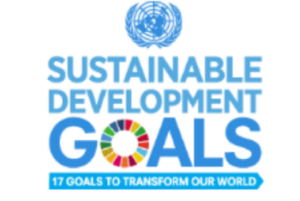
McLeod Group Blog, June 4, 2018
Canada has failed to live up to a key commitment under the United Nation’s 2030 Agenda and the Sustainable Development Goals (SDGs). When the UN General Assembly adopted the SDGs in 2015, they included the principle of universality, whereby all countries – rich, middle-income and poor – had an obligation to create and implement their own national SDG framework. The central objective of assuring “no one is left behind” was to be respected in implementing the SDGs.
Canada’s previous Conservative government considered this obligation to report publicly undignified for a G7 country. While fine for developing countries, the government did not believe that Canada should have to account for its performance in advancing the well-being of its citizens and the status of the environment.
Each UN member committed to report at the annual UN High-Level Policy Forum (HLPF) on the status of its national framework via a “voluntary national review”, preferably made by the country’s head of government. The UN’s review sessions are more than an opportunity to compare scorecards. They are intended to promote the sharing of experience and joint action in implementing the SDGs, among and within countries, in a spirit of partnership.
Where did Canada fall behind?
A Brookings Institution study published last October indicates the scale of the challenges ahead. Its assessment of Canada’s progress in implementing the SDGs found important gaps: Data were not available for 108 of 169 SDG targets. For those indicators for which data were available, Canada was only on track for 17 of them. Most others were lagging, needing “acceleration” or “breakthrough”, with some 10% actually showing a negative trend. While Statistics Canada has been heavily involved technically in helping the UN fine-tune the SDG indicators, the department is now needed to build Canada’s own set of SDG-based national statistics.
In April, the Office of the Auditor General reported that Canada had failed to deliver on its pledged national framework, which would set out a national consensus on priority Sustainable Development Goal targets with indicators and a game plan to reach them. According to the report, Canada did not even have its basic organizational act together by the end of 2017. There were no implementation plans and no assessments made as to whether existing policies were supportive of the SDGs.
No wonder Canada avoided making presentations at the UN forum in 2016 and 2017. Canada is only now on the list for presentation this July, along with 47 other laggards. In contrast, German Chancellor Angela Merkel made her first UN presentation back in 2016. Indeed, Germany put in place a special cabinet-level SDG coordination process, engaging federal and state governments, as well as German civil society.
In Canada, initial responsibility for a national SDG framework was left to a few federal departments, notably Global Affairs Canada and some other departments with technical interests in certain SDGs. The Auditor General’s report pointed to a missed opportunity to set up an effective whole-of-Canada structure that would have required a substantive role – beyond the federal government – for provinces, indigenous peoples and civil society. Such a structure could serve to pull together the essential consensus and experience to build a national SDG framework and then to track performance.
Canadians have been largely denied the opportunity to help frame the government’s response to the universality principle and the attainment of the SDGs at home. Moreover, there seems to have been so far no formal link between the Canadian agenda on Indigenous people and the SDGs.
A truly inclusive SDG process for Canada, one following the example of Chancellor Merkel and even German mayors, requires Prime Minister Justin Trudeau and the Privy Council Office to lead Canadian engagement. To be called an SDG “laggard” means Canada is seen as moving “backwards” in its multilateralism, rather than “being back”, as the current government pretends.
Canada has not merely underperformed on its formal SDG commitments. It is also exposing a serious flaw in its respect for global partnership as embodied in the universality principle. A better understanding of its own strengths and weaknesses would help Canada respond constructively to the world’s growing economic and political interdependence, especially the emerging economies of the Global South. As a middle power in this Trump era of “me first”, Canada has the opportunity to be seen by future partners as a country whose commitments can be trusted.
Canada’s self-assessment report at July’s UN policy forum (HLPF) should confirm the importance of partnerships, both domestic and international, for meeting the SDGs. Trudeau’s 2017 speech at the UN General Assembly recognized Canada’s shortfalls in implementing them. Next month, Trudeau should embrace the government’s responsibility to do its part in Canada while supporting partners in developing countries, especially the poorest.
